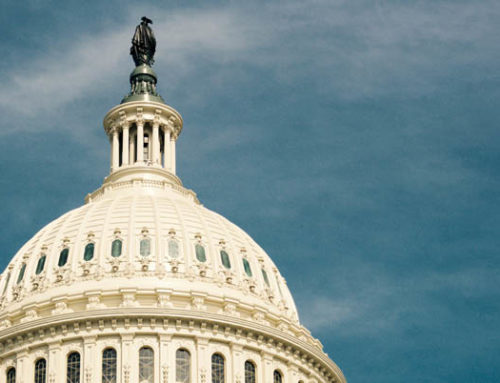Protested Big Bend Pipeline Now Closer to Approval
A coalition of ranchers, environmentalists and disgruntled landowners has suffered a major setback in its battle to block a proposed pipeline that would carry natural gas beneath 143 miles of largely untouched Big Bend-area land.
Federal Energy Regulatory Commission staff offered a key endorsement of a stretch of the Trans-Pecos Pipeline, writing that it “would not constitute a major federal action significantly affecting the quality of the human environment,” in a draft environmental assessment issued Monday.
The agency, which would regulate a part of the project that crosses into Mexico, also declined to expand its environmental review to the entire project as opponents had sought.
The 42-inch-wide pipeline would start at the Waha storage hub near Fort Stockton and cut through Pecos, Brewster and Presidio counties before crossing beneath the Rio Grande near the town of Presidio. It could bring up to 1.4 billion cubic feet of gas each day into Mexico, where officials have recently opened up the energy sector to private companies.
Its planners include Energy Transfer Partners and Mexico’s Carso Energy — a partnership that links Dallas billionaire Kelcy Warren with Carso’s Carlos Slim, one of the world’s richest men.
Vicki Granado, an Energy Transfer spokeswoman, said Monday that the company was “pleased” with the federal agency’s latest assessment. Energy Transfer plans to start construction in the coming months.
Supporters say the pipeline will bring jobs to West Texas — even if almost all are temporary — and yield a few million dollars in local tax revenue. Bringing natural gas into Mexico could help wean the nation’s border cities off dirtier-burning coal, wood and heating oil.
Opponents say the pipeline will at least temporarily mar the near-pristine landscape and come with safety risks such as explosions and wildfires. Others simply don’t want to lose their land to eminent domain.
The federal energy commission says it will oversee only the 1,093-foot stretch of pipeline that crosses below the Rio Grande and into Mexico. Texas has authority over the rest, which is considered an “intrastate” pipeline.
Since Texas plays no role in routing pipelines or studying environmental impacts, those protesting the Trans-Pecos project asked the federal commission to study the environmental impacts of the full project.
The agency declined to do so on Monday.
The commission “has no jurisdiction for the intrastate pipeline facilities; therefore the scope of the proposed action in this [environmental assessment] is the Presidio Border Crossing Project,” Monday’s report said.
The project’s full application is still pending at the agency, and the public has until Feb. 3 to formally comment on the draft assessment.
If federal regulators ultimately follow Monday’s recommendations in approving the pipeline, opponents plan to challenge the decision in federal court, said Coyne Gibson, a former pipeline industry engineer who is advising the Big Bend Conservation Alliance.
About 426,000 miles of pipeline — about one-sixth of the nation’s network — crisscross Texas, carrying oil, gas and other hazardous liquids. But large swaths of the Big Bend area are pipeline-free, largely because the region – with its mountains, state and national parks, and famously dark skies — is so secluded.
Texas Targets EPA Smog Rule in Latest Suit
In another lawsuit against the federal Environmental Protection Agency, the state of Texas is taking aim at tightened standards on ground-level ozone — President Obama’s effort to cut down on smog that chokes the nation’s skies.
An ozone standard finalized in October shrank the previous 75 parts per billion limits on ozone to 70 parts per billion, putting pressure on some regions in Texas that struggled to meet the previous standards. The rules aim to crack down on pollution coming from factories, power plants and vehicle tailpipes.
Ozone forms when emissions from cars and industrial plants mix with other airborne compounds in sunlight, and it can worsen asthma, lung disease and heart conditions.
Though the new regulation is more lenient than what environmentalists called for, Texas leaders quickly joined with industry in blasting the regulation, arguing that it will cost billions of dollars to invest in cleaner technology that will yield fewer health benefits.
Now, the state has launched a legal attack— its 23rd lawsuit against the EPA since Obama took office in 2009.
Attorney General Ken Paxton filed the latest challenge, which he announced Monday, in the U.S. Court of Appeals for the District of Columbia last week.
“The EPA’s new ozone rule is not supported by scientific data,” Paxton, a Republican, said Monday in a statement. “Areas of the country that fail to comply with these impossible standards will be subject to costly new regulations that will harm our economy and kill jobs.”
A host of other states have filed separate challenges to the ozone rule. Among the states are Arizona, Arkansas, Kentucky, New Mexico, Oklahoma, North Dakota, Utah and Wisconsin.
Federal regulators and environmental groups say the lower ozone standard will improve public health, cutting down on diseases linked to the pollution and even curbing premature deaths.
“Ozone pollution means it hurts to breathe for those most vulnerable: our kids, our elderly and those suffering from heart and lung ailments,” EPA Administrator Gina McCarthy, said when rolling out the new standard. “Our job is to set science-backed standards that protect the health of the American people.”
But Texas continues to challenge the mainstream science behind the new rule, arguing that the tightened standard will have little-to-no effect on public health.
Its battle against new standards has included, as The Texas Tribune has reported, paying a research firm $1.65 million to look for holes in the science behind the standards. The Massachusetts-based firm, called Gradient, typically conducts research funded by industry groups like the American Petroleum Institute.
Supporters of the rule have called the state’s effort misleading and have compared it to the tobacco industry’s decades-long crusade against science linking its products to lung cancer.
A battle over ozone regulations has raged since the George W. Bush administration set the allowable standard at 75 parts per billion in 2008. It was a hugely controversial step that dismissed a unanimous advisory panel of scientists and doctors who said the standard should have been far lower.
Under the rules, states must submit plans showing how communities will meet the standards.
A federal court partially agreed with the scientists in 2013. But by then, it was already time to update the National Ambient Air Quality Standards, which limit pollutants such as ozone and must be reviewed every few years.
Millions of people in the U.S. — including those in Houston, Dallas and San Antonio — live in areas that struggle to meet the previous standards. Some communities have seen improvement, but health problems persist. In the Dallas-Fort Worth area alone, more than 1.1 million people struggle with asthma, heart disease and lung disease.
El Paso, Austin and swaths of East Texas that may have immediately struggled to meet a slightly lower threshold, which some EPA watchers expected when the rule was proposed, appear to be spared under the final rule, which applies to three-year averages.
Depending on the severity of their ozone problems, regions would have to meet the lower standards sometime between 2020 and 2037.
HIGHLIGHTS BEFORE THE HOLIDAYS…
Horse Racetrack Shutdowns Loom Across Texas
The Texas Racing Commission declined to repeal its earlier authorization of historical racing, a move that could mean a statewide shutdown for the entire horse racing industry in February.
The commission has been on a collision course with several members of the Legislature since last year, when the Commission voted to authorize tracks to implement historical racing, which involves gambling on electronic simulations of old races. Critics, including Lt. Gov. Dan Patrick and Senate Finance Committee Chairwoman Jane Nelson, R-Flower Mound, have decried the Commission’s efforts as a backdoor expansion of gambling in Texas.
A state district judge ruled last year that the commission had overstepped its authority. The Texas Horsemen’s Partnership, Texas Thoroughbred Association, the Texas Quarter Horse Association and Sam Houston Race Park have appealed the ruling.
While the legality of the commission’s actions have been makings its way through the court system, legislators weren’t content to wait. They threatened to defund the commission entirely if it didn’t repeal its historical racing rules. Defunding the commission would, in effect, dismantle the horse racing industry across the entire state, as tracks can’t operate without the commission in place to regulate them, according to state law.
In September, after a one-day shutdown, the commission and the Legislative Budget Board agreed to a temporary truce, extending funding through February. The implied condition of the extension was a repeal of historical racing — the repeal that did not pass at Tuesday’s meeting.
The board voted 4-4 to maintain guidelines for historical racing, at least until the February meeting. Victoria North, who attended the meeting as Comptroller Glenn Hegar’s representative on the Commission, abstained.
Later in the meeting, the commission voted to republish the historical racing guidelines and allow for further public comment on them, a move that will give the Commission another chance to vote on the status of historical racing before its budget runs out in late February.
Commission chairman Rolando Pablos, whom Gov. Greg Abbott appointed to the board last week after former chair Robert Schmidt stepped down from the leadership role, made clear during the meeting that he was in favor of a repeal. After the vote, he said the commission might as well begin taking steps to shut itself down.
Before the vote, various representatives from the horse racing industry pled with the commission to maintain historical racing’s legality for the time being. In tearful testimonies, racetrack owners, track employees and the directors of the state’s largest racing associations outlined the impact a repeal would have on thousands of racetrack workers across the state.
Governor Abbott Names Next Education Commissioner
Gov. Greg Abbott appointed Dallas Independent School District Trustee Mike Morath as the state’s next education commissioner, describing him as “a proven education reformer.”
Morath, chairman of Morath Investments, has served on the Dallas school board since 2011. A vocal school-choice proponent, he pushed for a controversial — and, for now, scrapped — “home rule” policy that would have allowed the Dallas school district to escape state control.
He will succeed Michael Williams as head of the Texas Education Agency, which oversees the state’s more than 1,200 school districts, including charters. Williams, appointed by then-Gov. Rick Perry in 2012, is stepping down Jan. 1.
It is the second leadership post to which Abbott has appointed Morath in recent weeks, although the latest will trump the first. Last month, Abbott picked the apparently avid mountain climber to head a new legislative commission that will recommend changes to the state’s method of student assessment and school accountability. Abbott will have to appoint someone else to head the 15-member Commission on Next Generation Assessments and Accountability, which must make recommendations by Sept. 1.
“The State of Texas is exceptional, and our education system must be too,” Abbott said in a statement Monday. “A proven education reformer, Mike Morath will not accept the status quo in our schools. He is committed to innovative solutions that will empower Texas principals, teachers, and students to strive for the highest in education excellence. Mike Morath has led climbs up Mount Rainier and climbed the 20,305-foot Island Peak near Mount Everest. Now he will help Texas education reach new heights.”
Abbott’s statement called Morath “a change-agent at DISD who led reforms that helped propel Dallas public schools to achieve greater student and operational outcomes.”
Among them: a merit pay system for teachers, higher graduation rates and standardized test scores and better financials — including two bond rating upgrades.
Morath said in his own statement that he intends to bring “a focus on improving student outcomes” and to support teachers.
“I realize that no school system’s students can outperform their teachers, and supporting our teachers to improve teaching quality are essential in our public education system,” he said. “I look forward to advancing that quality, as well as student outcomes, to ensure Texas becomes the number one school system in the nation.”
Teacher groups were not as enthusiastic about Morath’s appointment.
It “sends another signal that Abbott is very interested in the agenda of the education reform and pro-privatization crowd,” the Association of Texas Professional Educators said Monday, citing Abbott’s recent appointment of another reformer to the Pension Review Board, which teachers groups decried.
“We hope that Morath will be the type of commissioner who is receptive to educators’ voices in matters of policy and will support local control,” the association’s executive director, Gary Godsey, said in a statement.
But Morath won bipartisan praise from some elected officials Monday. Dallas Mayor Mike Rawlings, a Democrat who backed the controversial home-rule initiative, and Lt. Gov. Dan Patrick, a tea party Republican, both cheered Abbott’s choice.
“I worked closely with Mike over the years to develop education reforms that have improved our schools and expanded school choice,” Patrick said, referencing his time chairing, and vice chairing, the Senate Education Committee when he was a state senator. “I look forward to continuing our work to make Texas schools the envy of the nation.”
Before becoming a full-time investor, Morath owned a software company, Minute Menu Systems, that assisted child care providers in administering a federal food program for low-income children, according to his biography on the Dallas school district website.
Transportation Agency Names Its Next Chief
The Texas Transportation Commission appointed a new executive director for the Texas Department of Transportation: James Bass, the agency’s longtime chief financial officer.
Commissioners have been searching for a new executive director for the sprawling agency since October, when current transportation head Joe Weber announced he would step down at the end of the year. The agency received more than 70 applications. Bass was one of eight applicants interviewed, spokeswoman Veronica Beyer said.
Commissioners voted unanimously to appoint Bass as the new head of TxDOT starting Jan. 1.
Commission Chairman Tryon Lewis said Bass has repeatedly proved himself essential through difficult periods for the agency in the past.
“The commission could depend on his discretion and his judgment and his honor and his honesty in those occasions,” Lewis said.
Bass began working at TxDOT in 1985 and has been CFO since 2005. Bass served as the agency’s interim executive director before the commission selected Weber, a Texas A&M University official who was also a former military leader and longtime friend of Gov. Rick Perry.
Bass will be a familiar face to many state lawmakers as a regular at the Capitol for years, often testifying before committees about the agency’s finances and, perhaps more often, its financial challenges.
But Bass is taking over the agency as it’s poised to see its funding grow significantly after voters approved Proposition 7 in the Nov. 3 election. That measure dedicates $2.5 billion of the general sales tax to the highway fund beginning in 2017 — as well as a portion of future motor vehicle sales taxes beginning in 2019. That, along with other measures by the Legislature over the last three years, is expected to get TxDOT close to the $5 billion in extra funding it said it needed annually to maintain current traffic levels in such a fast-growing state.
Commissioners also praised Weber’s tenure at the agency.
“Over the last two years, you’ve encapsulated what it means to be a forward-thinking, action-oriented leader for this massive agency we call TxDOT,” Commissioner Jeff Moseley told Weber.
Lt. Governor Patrick Appoints Alan West to the Sunset Advisory Commission; Also Changes Leadership to Two of the Senate’s Most Powerful Committees
Lt. Gov. Dan Patrick announced the appointment of conservative firebrand Allen West, a former Florida congressman and prominent Fox News contributor, to the state’s Sunset Advisory Commission.
West was elected to Congress in 2010 to represent Florida’s 22nd district, and he narrowly lost a re-election bid in 2012. He served in the U.S. Army for more than 20 years, including serving as a battalion commander during the Iraq War, before being stripped of his command after pleading guilty to assaulting an Iraqi detainee during interrogation in 2003, according to the Boston Globe. West retired with the rank of lieutenant colonel and has since become a conservative commentator. West has lived in Dallas for just over a year and is currently president and CEO of the Dallas-based National Center for Policy Analysis, a think tank.
“There is no mission more important than working towards a more efficient and effective state government,” West said in a statement. “As a graduate of the University of Tennessee and a former member of Congress, it is a blessing to follow in the footsteps of Davy Crockett who came to Texas to fight for liberty and freedom.”
The Sunset Commission, whose members are appointed by the lieutenant governor and speaker of the House, is tasked with periodically reviewing the operation and efficiency of different state agencies. Patrick appointed West as one of the commission’s two public members. The other 10 people on the commission are members of the Legislature. West’s appointment is likely to draw a spotlight on the typically low-profile commission, which is reviewing more than a dozen agencies ahead of the 2017 session, including the Department of Transportation and the Texas Medical Board.
Patrick also made changes to the leadership of two of the Senate’s most powerful committees. State Sen. Craig Estes, R-Wichita Falls, will replace retiring state Sen. Troy Fraser, R-Horseshoe Bay as chairman of the Senate Natural Resources and Economic Development Committee. State Sen. Kelly Hancock, R-North Richland Hills, will replace retiring state Sen. Kevin Eltife, R-Tyler, as chair of the Senate Business and Commerce Committee.
Railroad Commission Names New Executive Director
Texas’ oil and gas regulator has named a new executive director. In a unanimous vote, the three-member Texas Railroad Commission named to the position Kimberly Corley, a former executive for the Shell Oil Company.
The executive director oversees the day-to-day operations of the agency and works to implement the policies its commissioners establish.
“Ms. Corley’s technical expertise, executive experience and industry knowledge will be incredibly valuable assets to the commission, and I am confident that she will be an excellent leader,” Chairman David Porter said in a statement.
Corley will replace Lindil Fowler, who was temporarily filling the position after Milton Rister retired in August after three years heading the agency.
Corley has over 30 years of energy industry experience, the agency said. She held several high-level positions at Shell before leaving the energy giant this year. Most recently, she served as the business development manager for gas monetization and general manager of construction risk mitigation and workforce development at Shell Upstream Americas.
Before working at Shell, she held various positions with oil and gas pipeline companies, including Kinder Morgan Energy Partners, El Paso Corporation and Tenneco Energy.
Commissioner Christi Craddick said the agency was eying a starting date in February. Corley will draw an annual salary of $180,000.
National News
- Before the holidays, U.S. Congress was on the verge of lifting a 40-year ban on crude oil exports onto the international market, an issue that pitted Texans who work in oil production — and their House representatives — against those who work in refineries.
- In a trillion-dollar Congressional spending bill, House Republicans managed to move forward on an export ban repeal. U.S. House Speaker Paul Ryan and House Minority Leader Nancy Pelosi struck a deal on the budget
- On Monday, the Obama administration, state and federal lawmakers and medical experts asked the U.S. Supreme Court Monday to overturn Texas’ 2013 abortion law, which could shut down about half of the state’s 19 remaining abortion clinics.
- In 45 amicus briefs filed to the Supreme Court, opponents of the Texas abortion law known as House Bill 2 argued that restrictions under the law are unconstitutional because they impose an undue burden on women seeking abortions and would do little to improve women’s health.
- On Tuesday, President Obama gave executive orders that provide for more background checks during gun purchases.
- He said he plans to increase the number of vendors who are required to conduct criminal background checks when they sell guns. He said he will also hire more federal employees to handle those reviews and require dealers to inform federal authorities when a gun sold online is lost or stolen during transit. Obama also ordered U.S. attorney’s offices across the state to step up their domestic violence prevention efforts.
Elections Update
With the beginning of the new year behind us, candidates are amping up there campaign efforts before the March 1st primary. Click to view a list of candidates. Having no opponent from their own or other major party, there are a vast number of Republicans and Democrats who have all but been elected, including 61 members of the Texas House, nine state senators and five of the state’s 36-member congressional delegation. Others have bumpier roads ahead.
Ten members of Congress, two state senators and 15 members of the state House will face opponents in the March primaries and, if they survive, will face opponents again in the November general election.
Some have primary opponents but no general election opponents; the winners of those primaries, whether they are incumbents or challengers, will effectively be ready to take their oaths of office. This group includes four members of Congress, two state senators and 28 members of the Texas House.
Others — 10 U.S. representatives from Texas, two state senators and 30 members of the Texas House — face no primary opponents but will face a candidate from the other major party in the general election 11 months from now.
A relatively few current officeholders have said they will not return, including two in Congress, two in the 31-member state Senate and 16 in the 150-member state House. Two statewide officials — Railroad Commissioner David Porter and Texas Court of Criminal Appeals Judge Cheryl Johnson — are on that list, too.
Only 16 senators are on the ballot in 2016, and nine of them are unopposed. That means 24 of the current 31 senators will be back for more in 2017. In the House, Democrats would have to net 22 seats now held by Republicans. Only 34 Republicans have general election opponents, and Democrats are running in only six of the open seats now held by Republicans. The Democrats would have to win more than half of those — and most were drawn to be prohibitively favorable to Republican candidates.
Below is a quick summary of races in the Texas House, Texas Senate and Congress:
Texas House of Representatives
- 16 Incumbents Not Seeking Re-Election
(Aycock (R) H-54; Crownover (R) H-64; Farias (D) H-118; Fletcher (R) H-130; Harless (R) H-126; Hughes (R) H-5; Keffer (R) H-60; King, S. (R) H-71; Marquez (D) H-77; Martinez Fischer (D) H-116; McClendon (D) H-120; Naishtat (D) H-49; Otto (R) H-18; Simpson (R) H-7; Turner, Scott (R) H-33; Turner, Sylvester(D) H-139)
- 26 Incumbents with Primary Opposition
(Vandeaver (R) H-1; Flynn (R) H-2; Spitzer (R) H-4; Cook (R) H-8; Kacal (R) H-12; Raney (R) H-14; Cyrier (R) H-17; Farney (R) H-20; Munoz (D) H-36; Oliveira (D) H37; White, M. (R) H-55; Burns (R) H-58; Sheffield (R) H-59; Miller, D. (R) H-73; Gonzalez, M. (D) H-75; Landgraf (R) H-81; Frullo (R) H-84; Tinderholt (R) H-94; Geren (R) H-99; Fallon (R) H-106; Rose (D) H-110; Straus (R) H-121; Minjarez (D) H-124; Huberty (R) H-127; Smith, W. (R) H-128; Allen (D) H-131; Farrar (D) H-148
- 32 Incumbents with General Election Opposition
(Schubert (R) H-13; Faircloth (R) H-23; Miller, R. (R) H-26; Thompson, Ed. (R) H-29; Canales (D) H-40; Guerra (D) H-41; Lozano (R) H-43; Kuempel (R) H-44; Dukes (D) H-46; Israel (D) H-50; Murr (R) H-53; Shaheen (R) H-66; Leach (R) H-67; Sanford (R) H-70; Moody (D) H-78; Stephenson (R) H-85; Krause (R) H-93; Collier (D) H-95; Goldman (R) H-97; Capriglione (R) H-98; Turner, C. (D) H-101; Koop (R) H-102; Anderson (R) H-105; Sheets (R) H-107; Meyer (R) H-108; Giddings (D) H-109; Davis, Y. (D) H-111; Galindo (R) H-117; Elkins (R) H-135; Dale (R) H-136; Pena (R) H-144; Coleman (D) H-147
- 15 Incumbents have both Primary & General Opposition
(Clardy (R) H-11; Reynolds (D) H-27; Workman (R) H47; Simmons (R) H-65; Laubenberg (R) H-89; Stickland (R) H-92; Zedler (R) H-96; Button (R) H-112; Burkett (R) H-113; Villalba (R) H-114; Rinaldi (R) H-115; Davis, S. (R) H-134; Wu (D) H-137; Vo (D) H-149; Riddle (R) H-150
- 61 Incumbents Have No Major Party Opposition
- 16 Open Seats
Same as those “not seeking re-election”
Texas Senate Districts
- 2 Incumbents Not Seeking Re-Election
(Eltife (R) S-1; Fraser (R) S-24)
- 15 Incumbents Are Not Up for Re-Election Until 2018
(Hall (R) S-2; Nichols (R) S-3; Schwertner (R) S-5; Bettencourt (R) S-7; Taylor, V. (R) S-8; Hancock (R) S-9; Burton (R) S-10; Watson (D) S-14; Whitmire (D) S-15; Huffines (R) S-16; Huffman (R) S-17; West (D) S-23; Campbell (R) S-25; Estes (R) S-30; Seliger (R) S-31)
- 2 Incumbents with Primary Opposition
(Menendez (D) S-26; Lucio, Jr. (D) S-27)
- 2 Incumbents with General Election Opposition
(Hinojosa (D) S-20; Birdwell (R) S-22)
- 1 Incumbent has both Primary & General Opposition
(Uresti (D) S-19)
- 9 Incumbents Have No Major Party Opposition
- 2 Open Seats
Same as “not seeking re-election”
Texas Congressional Districts
- 2 Incumbents Not Seeking Re-Election
(Hinojosa (D) C-14; Neugebauer (R) C-19)
- 4 Incumbents with Primary Opposition
(Ratcliffe (R) C-4; Brady (R) C-8; O’Rourke (D) C-16; Sessions (R) C-32)
- 10 Incumbents with General Election Opposition
(Poe (R) C-2; Green (D) C-9; McCaul (R) C-10; Granger (R) C-12; Jackson Lee (D) C-18; Olson (R) C-22; Marchant (R) C-24; Williams (R) C-25; Vela (D) C-34; Doggett (D) C-35)
- 15 Incumbents have both Primary & General Opposition
(Gohmert (R) C-1; Johnson, S. (R) C-3; Barton (R) C-6; Culberson (R) C-7; Weber (R) C-14; Flores (R) C-17; Smith, L. (R) C-21; Hurd (R) C-23; Burgess (R) C-26; Farenthold (R) C-27; Cuellar (D) C-28; Green (D) C-29; Johnson, E. (D) C-30; Carter (R) C-31; Veasey (D) C-33
- 5 Incumbents Have No Major Party Opposition
- 2 Open Seats
Same as “not seeking re-election”
Check out the recent elections summaries:
Important election dates:
- Early Voting for Primary Election: February 16th-26th, 2016
- Primary Election: March 1st, 2016
- Early Voting for General Election: October 24th-November 4th, 2016
- Election Day: November 8th, 2016
Public Hearing/Formal Meeting Notices
House Committee on Transportation Planning, Select (Invited Testimony Only)
Chair Rep. Pickett Time/Date: 9:00 am Wednesday, January 20, 2016
Location: Capitol Extension, E2.014
- Update from TxDOT working group on project selection criteria, rules and policies for project prioritization and selection, and funding categories (TxDOT)
- What the latest Federal reauthorization bill means to Texas (TxDOT)
- Comptroller estimates regarding both Proposition 1 and Proposition 7 funding for the upcoming year and the next biennium (Comptroller)
Senate Committee on Veteran Affairs & Military Installations-S/C Border Security
Chair Sen. Birdwell Time/Date: 10:00 am Friday, January 22, 2016
Location: Capitol Extension, E1.012
- Sanctuary Cities charge: “Study the various sanctuary city policies statewide, the number and types of crimes committed by previously arrested illegal immigrants within the jurisdiction of a “sanctuary policy”,and possible solutions to discourage governmental entities from putting in place policies that conflict with immigration laws. Make recommendations to improve community safety.”
Joint Committee on Health and Human Services Transition, Oversight
(Invited Testimony Only)
Chair Sen. Nelson, Rep. Price Time/Date: 1:30 pm Monday, January 25, 2016
Location: Capitol Extension, E1.036
Senate Committee on State Affairs (Invited Testimony Only)
Chair Sen. Huffman Time/Date: 9:00 am Tuesday, January 26, 2016
Location: Capitol Extension, E1.016
- Monitor the implementation of open and campus carry legislation and determine if the current laws regulating the places that handguns can be carried are easily understood or if clarification is needed to ensure the average citizen understands when, where, and under what circumstances it is lawful to carry a weapon, versus when it is a criminal offense for which there may be a defense.
Senate Committee on Business and Commerce (Invited Testimony Only)
Chair Sen. Eltife Time/Date: 10:00 am Tuesday, January 26, 2016
Location: Capitol Extension, E1.012
- Study elder financial abuse and determine what steps the State of Texas should take to help protect older Texans from financial exploitation.
- Examine and make recommendations for necessary changes regarding the collection process of delinquent ad valorem property taxes, including an inquiry into the role that tax lien transfers play in forestalling foreclosure.
Senate Committee on Finance
Chair Sen. Nelson Time/Date: 1:00 pm Tuesday, January 26, 2016
Location: Capitol Extension, E1.036
- Monitor the state’s progress in coordinating behavioral health services and expenditures across state government, pursuant to Article IX Sec. 10.04. Identify ways state agencies that provide mental health services are collaborating and taking steps to eliminate redundancy, create efficiency, utilize best practices, ensure optimal service delivery, and demonstrate expenditures are coordinated and in furtherance of a behavioral health statewide strategic plan. Identify barriers that prevent the coordination of behavioral health services. Make recommendations to maximize use of state funding for mental health.
Senate Committee on Transportation (Invited Testimony Only)
Chair Sen. Nichols Time/Date: 10:00 am Wednesday, January 27, 2016
Location: Capitol Extension, E1.016
- Evaluate the efficiency and effectiveness of the state’s Vehicle Inspection Program. Make recommendations on how to compress or otherwise reduce the number of required inspections.
- Evaluate the necessity of the Driver Responsibility Program and make recommendations for alternative methods of achieving the programs objectives.
Senate Committee on State Affairs
Chair Sen. Huffman Time/Date: 9:00 am Wednesday, February 17, 2016
Location: Senate Chamber
- Examine measures to affirm 1st Amendment religious liberty protections in Texas, along with the relationship between local ordinances and state and federal law. Make recommendations to ensure that the government does not force individuals, organizations or businesses to violate their sincerely held religious beliefs.
Senate Committee on Health and Human Services
Chair Sen. Schwertner Time/Date: 9:00 am Thursday, February 18, 2016
Location: Senate Chamber
- Study and make recommendations on innovative methods and best practices to promote healthy aging for the state’s population and reduce chronic medical and behavioral health conditions. Identify opportunities for improved collaboration to promote healthy aging in the health and human services system at the state, regional and local levels;
- Examine and recommend ways to improve quality and oversight in long-term care settings, including nursing homes and ICF/HCS programs. Monitor the implementation of legislation addressed by the Senate Committee on Health and Human Services during the 84th Regular Session related to the revocation of nursing home licenses for repeated serious violations; and
- Examine the cause of action known as “wrongful birth.” The study should examine (1) its history in Texas, (2) its effect on the practice of medicine, and (3) its effect on children with disabilities and their families. Examine related measures proposed or passed in other states.
Senate Committee on State Affairs
Chair Sen. Huffman Time/Date: 9:00 am Thursday February 18, 2016
Location: E1.016
- Examine the need to adjust Texas judicial salaries to attract, maintain, and support a qualified judiciary capable of meeting the current and future needs of Texas and its citizens. Study and recommend whether Texas should delink legislators’ standard service retirement annuities from district judge salaries. Examine the effect of eliminating straight-party voting for candidates for judicial office and make recommendations to ensure candidates are given individual consideration by voters.
Senate Committee on State Affairs
Chair Sen. Huffman Time/Date: 9:00 am Tuesday March 29, 2016
Location: Senate Chamber
- Examine whether there are chief law enforcement officers within the state who deny NFA applications without any cause. Examine the application and certification process and recommend ways to eliminate no-cause denials.
- Gather and review data on the compensation provided to private property owners for property purchased or taken by entities with eminent domain authority. Examine the variance, if any, between the offers and the fair market values of properties taken through eminent domain. Make recommendations to ensure property owners are fairly compensated.
Senate Committee on Finance
Chair Sen. Nelson Time/Date: 9:30 am Wednesday March 30, 2016
Location: Capitol Extension, E1.036
- Study the benefits, including the dynamic effects, of continuing to phase out the franchise tax. Consider alternate approaches to funding the Property Tax Relief Fund.
- Review the state’s current sales tax holiday structure and determine its economic benefit to the state. Evaluate and consider the merits of any potential expansion of the tax holiday either in the application of the sales tax exemption or the timing of the holiday.






